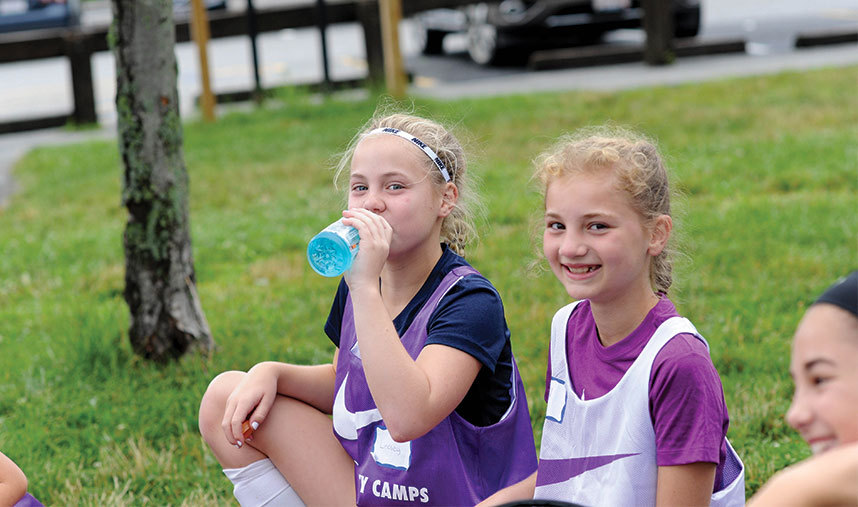Field Hockey Tip
Nutrition Tips for Field Hockey Players

Nutrition is important for field hockey players of varying skill level. This guide, commonly used by Nike Field Hockey Camp athletes, will give you tips on how to fuel your body best to ensure you are performing at highest level.
Important Macronutrients
Macronutrients are the energy providing chemicals required by the human body to ensure it can perform the most basic functions. In field hockey, these macronutrients are what help you remain physically and mentally quick. Athletes should consume a balanced diet of carbohydrates, proteins, and fats. These three components of your diet provide energy to your body and it is important that you consume the appropriate quantities to train and compete effectively throughout the field hockey season.
- Carbohydrates: Carbs provide the most energy to your body, so you need to consume large amounts as they are metabolized quickly. There are two types of carbs, a simple carbohydrate and a complex carbohydrate. A simple carbohydrate can be commonly found white sugar and it provides the body with a quick burst of energy. This carb is not beneficial for field hockey players since it will not last you through an entire field hockey game. The complex carbohydrate breaks down slowly in the body and can provide you with more energy for a longer amount of time. These are commonly found in whole wheat, pasta, brown rice, quinoa, legumes, and corn. Eating a large amount of these complex carbs the night before a field hockey game will allow you to perform longer on the turf.
- Proteins: While proteins are not the best source of energy for exercise, they are great for building and repairing muscle after you play a grueling game. A great source of protein can be found in all meats, cheese, yogurt, eggs, peanut butter, and tofu. Adding a protein shake to your diet can also be a great way to refuel your body after a tough practice or intense strength training workout!
- Fats: Fats are found in almost all foods and can be used as fuel during less intensive workouts. For example, if you are planning on practicing your shots on goal, you may want to consume some foods with good fat beforehand. Nuts, seeds, avocado, and oils are good sources of healthy fat.
When should I eat?
It is important to plan out meals based on your playing schedule. If you want to remain at peak performance, it is important that you continue to fuel your body throughout the day. Two to three hours prior to an big game, plan to consume large amounts of complex carbohydrates. If it is right before an intense workout, eating some simple carbs will digest quickly and give you the boost of energy you need to get started.
After your game or workout, plan to eat something that contains both carbohydrates and proteins. This will help replenish the nutrients you lost during strenuous activity. A quick meal example is a glass of chocolate milk and a peanut butter sandwich. You have a source of good carbohydrates and proteins.
Hydration
The average field hockey player runs 5.6 miles in a single field hockey game. With that much energy being exerted, it is also important to recognize the amount of fluids depleting from your body. Sweat and heavy breathing can dehydrate your body quickly. Throughout an intense game or long practice, players can lose up to 2 liters of fluid. It is very important that you are constantly replenishing your body with fluids by drinking water. If not, dehydration can begin to occur which will decrease your performance on the field.
To maintain your hydration, follow the important tip:
- 16floz two hours before
- 8floz 15 minutes before
- 4-8floz during the game
- At least 20floz for every pound of fluid lost during the game
Bonus Tip
Maintaining your nutrition will help you become a well-rounded athlete. It is important to understand that the nutrition tips listed above are a general guideline to all athletes looking to maintain a healthy lifestyle. Every athletes body is different and responds to variations of nutrition differently. Field Hockey players should consult with a team nutritionist or doctor to ensure their diet fits their needs.
Utilize these nutrition tips and other field hockey tips to prepare for your upcoming field hockey season.
